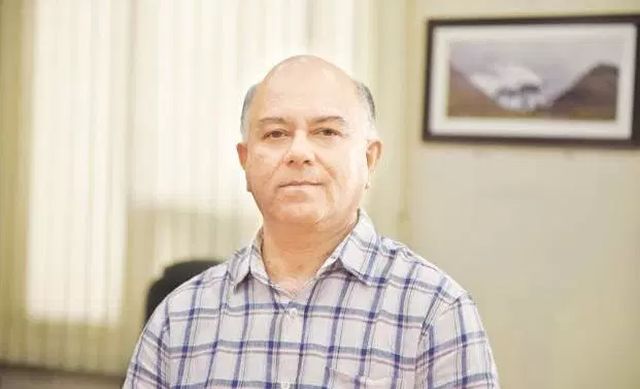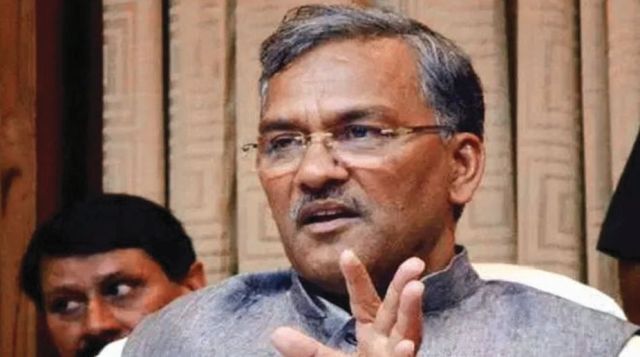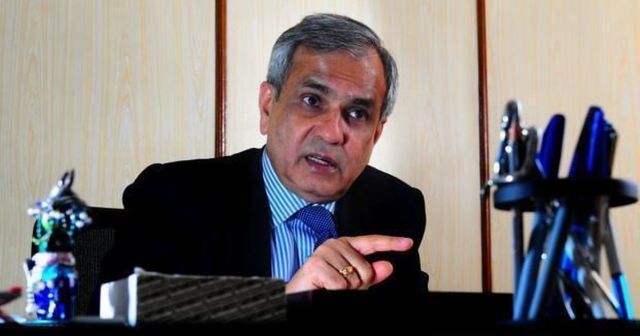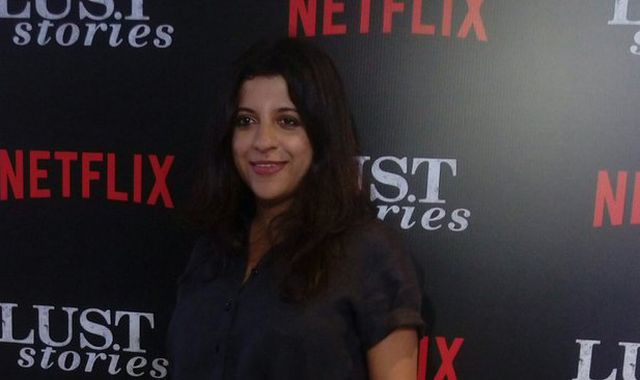
by Editor | May 25, 2021 | Interviews

Prabhat K. Bezboruah
By Bappaditya Chatterjee,
Kolkata : Some “radical steps” envisaged by the central government for re-defining the role of the Tea Board have been put on the “back burner” though its performance is still “under the scanner”, its Chairman Prabhat K. Bezboruah has said.
The Union Commerce Ministry has asked the Indian Institute of Foreign Trade to look into the functioning of the Board and how its mandate can be altered to serve the interests of the stakeholders of tea industry better, Bezboruah told IANS in an interview.
“In terms of re-organisation of Tea Board, there were some radical steps envisaged by the Centre when Nirmala Sitharaman was the Commerce Minister. Now, I think these have been put on the backburner and the proposals frozen for the time being. I don’t think there will be any major structural changes in the commodity boards,” he said.
“However, the Board’s performance continues to be under the scanner due to widespread dissatisfaction expressed by many segments of stakeholders. As a consequence, the Union Commerce Ministry has requested Indian Institute of Foreign Trade to look at the functioning of the Board and how its mandate can be altered to serve the interests of the stakeholders of tea industry better,” he said during the candid chat.
Bezboruah, formerly a banker in the US and a well known tea planter from Assam, said the Board must “reinvent itself” and play the role of “facilitator” to the industry instead of a “regulator”.
“I’ve tried to push for changing the role of Tea Board from that of a regulator to that of a facilitator. The Board is still suffering from red tapism and a license raj hangover, and this mindset should be altered. There is no sense having a regulator when everything else related to supply and demand is open and unregulated.
“If the Board cannot control supply — witness the huge growth of the small holder sector — what is the point of over-regulating the organised sector” he asked, adding: “despite the Board’s efforts at enforcing all kinds of archaic rules, the implementation of its diktats was patchy and varied hugely from state to state depending on the implementing official’s whims.”
He pointed out that the centre continued to look at downsizing options and re-defining the Tea Board’s role within the sector.
According to him, the Board should try to make the industry more efficient by improving its yield and productivity by increasing the demand for tea and by educating consumers about the quality of tea.
“Tea Board should therefore focus on generic promotion of tea, targeted export promotion, improving the efficiency of the gardens, development of the industry by improving the yield, changing the product mix and helping the tea properties to mitigate the effects of climate change, among other schemes” Bezboruah said.
He also said the tea industry, which is in a “Catch-22 situation”, has been suffering from low yields, stagnating prices and attrition of workers in the face of “low wages”.
“The industry is barely earning any profit, and the sensitivity of the cost of production to wage increases is an absurd 60 per cent, that is, if wages go up by Rs 10 per day, the cost of production of a typical North India garden will go up by Rs 6.”
According to him, organised players have actually been losing their crop because of “old bushes, overused soil, water logging, climate change, lack of timely rainfall and shortage of workers, among other factors”.
“The Tea Board must look into these problems. The Board and the government should also look at whether there is any organised effort to keep tea prices down,” said Bezboruah, who is the first non-bureaucrat and an industry insider to be at the helm of the Kolkata-headquartered organisation, adding that tea prices have gone up only 20 times in the last 60 years whereas prices of staples like rice and wheat have gone up 100 times over this period.
He, however, welcomed the Appointments Committee of the Cabinet approval of the proposal to appoint IPS officer Arun Kumar Ray as Deputy Chairman of Tea Board.
“Having a permanent Deputy Chairman, who is also the CEO of the Tea Board, is what the industry needs. Somebody who stays in Kolkata, would be able to handle the problems that the Board is facing more effectively,” Bezboruah explained.
(Bappaditya Chaterjee can be contacted at bappaditya.c@ians.in)
—IANS

by Editor | May 25, 2021 | Interviews

Trivendra Singh Rawat
By Rajnish Singh,
Dehradun : As Uttarakhand hosts the fourth International Yoga Day on Thursday, Chief Minister Trivendra Singh Rawat feels that the event may help attract more tourists to the state, creating more job and business opportunities.
The reason Rawat thinks the yoga day will boost tourism is because of the presence of Prime Minister Narendra Modi at the mega event which he reasons was watched by people across the world.
“Hosting the main International Yoga Day event undoubtedly gave a new identity to Uttarakhand as 193 countries watched it.
“As Prime Minister Modi himself participated in the event, Uttarakhand will get a world class platform. It would really attract domestic as well as foreign tourists,” Rawat told IANS.
If tourism gets a boost, it will help in creating new jobs and business opportunities in the state.
“If everything goes well as we are expecting, Uttarakhand will get a new direction. The door to employment will open for youths.”
The Chief Minister said over three crore tourists, including 18 lakh foreigners, visit Uttarakhand every year. If the number increases, the state will earn more revenue.
Rawat said the attraction of foreign tourists towards Uttarakhand is mainly because it is famous as an yoga centre of India. After this event, the state’s fame will “definitely increase”.
He said more than 35 volunteers of foreign countries participated in this event and did yoga ‘asanas’ along with nearly 50,000 people in the sprawling lawn of Dehradun’s Forest Research Institute (FRI).
Over 45,000 people did yoga postures on mats while around 5,000 people, including security forces, witnessed the event.
“The successful hosting of the mega event would have surely sent a message to others watching the function in other countries. They would surely want to learn the yoga technique and visit Uttarakhand,” Rawat added.
Rawat on Wednesday wrote a blog thanking the Prime Minister for selecting the state capital as the host of the main event on International Yoga Day.
The tourism sector in Uttarakhand suffered badly in the aftermath of the 2013 devastating flash floods in the hills.
Officials in Uttarakhand administration said domestic tourist footfall in the state after the 2013 disaster fell by over 25 per cent while it went down by over 20 per cent in terms of foreign tourism.
Tourism has again picked up, and officials expect the International Yoga Day to give it a further boost.
(Rajnish Singh can be contacted at rajnish.s@ians.in)
—IANS

by Editor | May 25, 2021 | Interviews
 By Sugandha Rawal,
By Sugandha Rawal,
New Delhi : Actress Huma Qureshi says people in India have a tendency to intimidate a woman when she opens up about sexual harassment, making her feel like an offender instead of a victim. She feels there is a need to create a safer and comfortable environment for women.
“To be honest, sexual harassment at work place is not being managed well. We often have a tendency to intimidate or talk against a woman when she speaks out on sexual harassment as if she is the offender not the man,” Huma told IANS in interview over the phone from Mumbai.
“We need to change the environment where more women feel safer and more comfortable to talk about who is harassing them. It is our responsibility as a society,” she added.
The actress, who opened up about facing sexual advances from people associated with showbiz and different professions, said men need to be part of the dialogue to bring a change.
“I am a feminist. When I say I am feminist, I mean an equal world. I don’t believe in an unequal world. An equal world can be created when men and women come together.
“We cannot do this without the men. We need good, strong male role models as well…So that other men have role model to follow. It has to be done together.”
When it comes to gender equality in the industry, she said: “The problem will go away when we talk about women working behind the scene. There were female actors, but there were few female technicians, women directors, editors, camera person. Today, I see a lot more women working behind the camera.
“It creates a far more safer environment.”
From “Gangs of Wasseypur”, “Luv Shuv Tey Chicken Khurana”, “Ek Thi Daayan”, “Dedh Ishqiya” to “Jolly LLB 2”, Huma takes up strong female characters in films.
She has delivered hits like “Ek Thi Daayan”, “Badlapur” and “Jolly LLB 2”, but failed to generate the expected response with films like “Dedh Ishqiya”, “D-Day”, “Dobaara: See Your Evil” and “Kaala”.
From Shah Rukh Khan to Salman Khan to Anushka Sharma, there are many actors who are expanding their horizons by coming out with production houses. And Huma feels getting into production is the “next logical step” for every actor.
“As an actor, that is the next logical step because all actors — men or women — have certain shelf life and we have to wait for the right script and right project to come to us. It is very important as an artiste to generate work for ourself…We don’t need to be main protagonist all the time but just to be able to find interesting stuff.
“It is amazing that men and women are getting into production and creating extremely interesting content.”
The game has changed with digital platforms like Netflix and Amazon, says Huma.
“You need not rely on theatrical release. You need not be dependent on the hit or flop aspect. You can just create a work of art and that is so liberating and amazing.”
So, when is she stepping into production?
“Well, keep your eyes and ears open,” she said with a chuckle.
Asked about her next project, she said: “Going through some. I will let everyone know when it is confirmed.”
(Sugandha Rawal can be contacted at sugandha.r@ians.in)
—IANS

by Editor | May 25, 2021 | Interviews

NITI Aayog Vice Chairman Rajiv Kumar
By Vishav,
New Delhi : Even as the ruling BJP and its senior leaders have repeatedly attacked the Congress for leaving behind a legacy of “governance failure”, “policy paralysis” and “economy in shambles”, the Central government can no more use this as an excuse and will have to take ownership of not only its accomplishments but also its failures from now on, NITI Aayog Vice Chairman Rajiv Kumar said.
He said while it was necessary to look at the last four years of the Narendra Modi government in the context of the legacy it inherited from the UPA regime in 2014, the economy has now overcome those issues and henceforth, the government should be judged on its own merit.
“Now the economy has come out of those inheritance issues. No more should they be used as an excuse for anything. Whatever happens now is the government’s own (doing) completely,” Kumar told IANS in an interview.
“After all the government has done so much despite all of it (legacy issues). It took huge structural reforms like demonetisation, GST, Insolvency and Bankruptcy Code, Benami Act, RERA and recapitalisation of banks to overcome those legacy issues. I think we have finally overcome those and henceforth, the government should be judged on its own merit,” he added.
Kumar’s remarks hold significance since the Bharatiya Janata Party (BJP) and its senior leaders, including Prime Minister Narendra Modi and Union Minister Arun Jaitley have repeatedly ripped into the Congress for leaving behind an “economy in a shambles” which the government was still bringing on track.
Be it the crisis relating to non-performing assets, the Nirav Modi-linked PNB scam, the sorry state of the banking sector, the slow GDP growth rate, the fiscal deficit situation and even the rising oil prices, the BJP leaders have used every opportunity to blame it all on the legacy it inherited from the erstwhile UPA government.
Even the NITI Aayog Vice Chairman has often talked about the legacy inherited by the current government and how it has affected its performance.
“For a government which had inherited the most terrible economic situation and inherited a situation where there was a complete paralysis in governance and decision making, and also a situation where world economy was also not very good… given the legacy, given the world economy and given the breakdown of governance, I think this government has done very well,” Kumar said.
He added that when the BJP took over in 2014, the inflation had crossed the 9 per cent mark and growth rate had slumped to below six per cent.
“What (then Finance Miniser P.) Chidambaram had done was to allow the fiscal deficit to run from 2.8 at one time to as far as 6.4 per cent. From there to come to a situation where we have now achieved a growth rate of 6.7 per cent last year and 7.7 percent in the last quarter with inflation at 3.8 per cent, I think that’s just remarkable,” he said.
The fiscal deficit for 2017-18 was 3.5 per cent and the government has set the target of bringing it down to 3.3 per cent in the current fiscal.
The noted economist added the economy was much more balanced than it was before and had been pulled out of a crisis — a “crisis of complete private sector investment having been stopped because of the NPAs and the twin-balance sheet” problem.
“Not only has this government maintained the macro-economic balance and brought back growth on its track but along with it, it has made the economy far more cleaner and much more formalised, while also doing a lot to improve inclusion,” he said.
Asked if there are any areas where the government could have performed better, Kumar responded: “One clear role which the government has recognised is farmer’s income. I think this focus has now been brought into the budget. The agriculture sector remains a backward sector and it requires a lot of reforms.”
He added that performance in export sector was a cause of concern while the water sector, which was turning into a crisis situation, was another area which needed attention along with the quality of education.
“These are chronic issues. They take time to be figured out. But the credit should be given to the government that they have recognised these problems and is not trying to hide them or brush them under the carpet. Also they are trying new approaches to improve the performance like ranking states on education quality, water conservation, health,” Kumar said.
(Vishav can be reached at vishav@ians.in)
—IANS

by Editor | May 25, 2021 | Entrepreneurship, Interviews, Women Entrepreneur

Zoya Akhtar
By Arundhuti Banerjee,
Mumbai : Bollywood filmmaker Zoya Akhtar says as more and more women make their mark in the workplace in Indian society, it is reflecting in the country’s cinema as well.
“Every time we have a woman on-screen, we can empower her in a different way rather than just giving a speech on the importance of equality and empowerment. I think sometimes we have to show her as powerful. I think the influx of women at the workplace is also changing the narratives in our cinema,” Zoya told IANS while commenting on how the image of women and woman-centric films is changing in Bollywood.
“There are women everywhere now — whether it is a film producer, director, studio head,publicist or in marketing — therefore there is a change of sensibility in the narration. As cinema is a reflection of the world around us, with more women coming into the mainstream business, more women narratives will grab the limelight,” added the 45-year-old.
Zoya’s forthcoming work is “Lust Stories”, an anthology of films by her and Karan Johar, Anurag Kashyap and Dibakar Banerjee, with whom she had earlier collaborated for “Bombay Talkies”.
On “Lust Stories”, which will release on Netflix on Friday, Zoya said: “We did not intend to make stories on women… It happened coincidentally. We did not sit together saying ‘Let’s make stories on sexual desire and lust of women’. But eventually, that has happened in all these four stories. You know why? Because that is how the world around us has changed, where a woman is voicing her thoughts on sexuality.”
Having said that, she added: “When it comes to writing characters, whether men or women, I think a good writer writes good characters. I know many men who, for years, have written strong, progressive women characters. I think how a writer and filmmaker think about women always translates into their work.”
So, which woman character reflects Zoya’s own personality?
“I write my films with Reema Kagti, and I think all the characters that I have written, somewhere or the other, reflect my thoughts, ideology and morality. I cannot choose one… But surely more flawed characters are closer to my heart,” answered the daughter of celebrated poet and lyricist Javed Akhtar.
As a filmmaker, Zoya wrote and directed the male bonding film “Zindagi Na Milegi Dobara”. She believes making such a road trip film on women would be much easier today.
“Of course, the same film could have been made on women back then, but it would be easier today. But when I wrote the film, I wanted to make it on men. So I do not know if I had to struggle more to find people to back the film say seven years ago. Since I did not try, my aim was rather to make a film about three boys and their experiences.
“I cannot say how different it could have been if it was made with women. But, I am sure, commercially it may be much easier now,” said the “Luck By Chance” maker.
In “Lust Stories”, her story revolves around the class difference in our society between house helps and their employers.
“Though the film is releasing worldwide digitally, I want the Indian audience to watch it. They will be able to relate to it the most. They would identify with the situation… how differently they treat their house helps, who are practically a part of their family. They will hopefully think about how they behave and change it,” said Zoya.
(Arundhuti Banerjee can be contacted at arundhuti.b@ians.in)
—IANS





